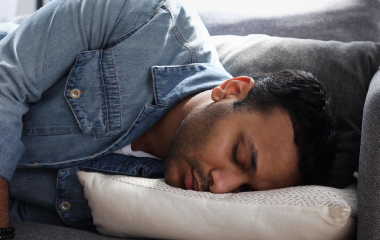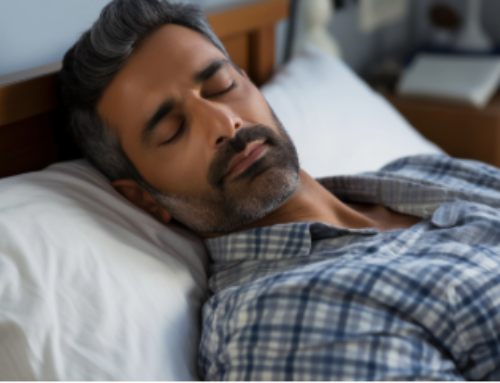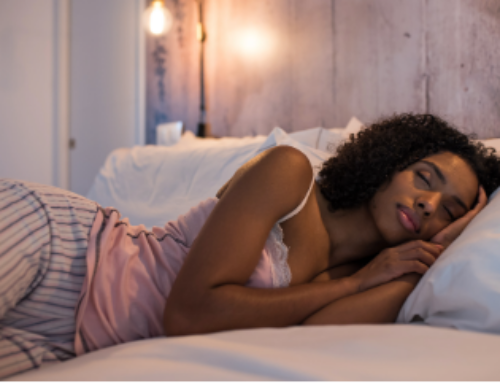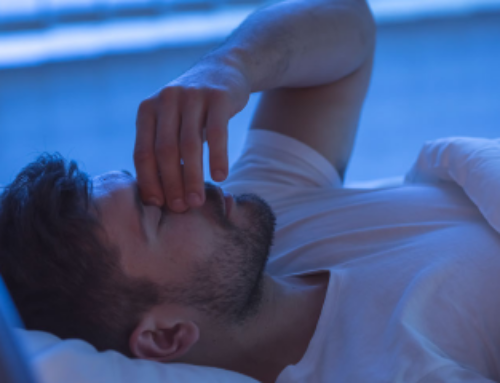Sleep is extremely important as we spend about a third of our life doing it. There is so much information out there about sleep it’s enough to make your head spin. Here, we dispel some of the common myths about sleeping.
Myth 1: People need less sleep with age
Fact: People often get less sleep as they get older, in part because they are more likely to develop a sleep disorder such as insomnia or sleep apnea, says Dr. Philip Gehrman, assistant professor of psychiatry at the University of Pennsylvania. “It’s not clear whether older adults need less sleep. One of the best ways to know how much sleep you need is to gradually give yourself more and more sleep until you feel rested during the day.”
While it’s likely that we need the same amount of sleep that we did as young adults – the natural course of sleep generation, is that we are less able to consolidate sleep for the same lengths of time as when we were younger, says Dr. Robert Basner, director of the sleep center at New York-Presbyterian Hospital/Columbia University Medical Center. “Thus, our sleep times tend to be more fragmented – less sleep at night, more napping during the day, for example. We also tend to have less ‘deep’ sleep – that is slow-wave sleep as we age; men are particularly prone to loss of this ‘restorative’ sleep stage with aging.”
Myth 2: Everyone needs eight hours of sleep
Fact: The American Academy of Sleep Medicine recommends that adults should sleep 7 or more hours per night on a regular basis to promote optimal health. Children and teens need even more sleep. Individual variability in sleep need is influenced by genetic, behavioral, medical, and environmental factors.
Myth 3: You can catch up on lost sleep on the weekends
Fact: It takes more than the two days of the weekend to get back to a rested state, says Gehrman. “If you try to catch up on the weekends, but then start sleeping less at the beginning of the next week, you quickly end up just as tired as you were at the end of the week. Eventually, you can catch up but it takes more than the weekend.”
Depending on how much ‘sleep debt’ you have accumulated, you can catch up on some lost sleep on the weekends, says Basner. “People should try to make up some of that sleep debt in order for optimal restorative sleep and better overall health. One problem with an irregular sleep schedule is that this may lead to problems with falling asleep readily and/or staying asleep as one shifts their circadian rhythms. For example, sleeping in on weekends may reset the circadian clock enough that one may have difficulty falling asleep at the necessary time Sunday night to arise on Monday morning.”
Myth 4: Watching TV helps you fall asleep
Fact: While some people like to have the background noise of the TV to help them fall asleep, the changing volume and lighting of the TV can break up the quality of your sleep and may lead you to wake up in the middle of the night, says Gerhman. “If you like background noise it’s better to use a fan or sound machine that provides more constant noise.”
Additionally, for some, the program they are watching actually interests them and they will likely stay up longer than is ideal for their schedule, says Basner. “Furthermore, this violates the golden rule of sleep hygiene – using your bed only for sleep and sex. If you learn to associate bedtime with watching TV, you are also in danger of developing ‘learned’ or ‘psychophysiological’ insomnia. Reading a boring book or newspaper in a dim light may be a better option – and again, it’s better to do none of these things once you actually get into bed, unless it indeed does help you to fall asleep readily.”
Myth 5: Exercising at night will help you sleep
Fact: People who exercise regularly tend to sleep better, says Gerhman. “However, if you exercise too close to bed it elevates your core body temperature and may make it tough to fall asleep. It’s best to avoid aerobic exercise in the 1 to 2 hours before you go to bed. Light stretching or yoga closer to bed is usually okay.”
There is no set physiology related to sleep and exercise which applies to everyone, although in general, exercise is in itself a healthy behavior and promotes sleep, another healthy behavior, says Basner. “For some, exercising in the evening indeed is helpful – but, more often, is stimulating, and for most of us a better option is to exercise first thing in the morning. Fitting exercise into your lifestyle is so important, though, that you should try to figure out if you are a ‘morning’ or an ‘evening’ person and fit your exercise time around your best sleep timing. For example, if you fall asleep early easily and awaken early, exercising in the morning is likely best. Morning exercise, particularly in the warmer months when you are likely to get dawn light into your eyes if you go outside, has the added benefit of ‘resetting’ your circadian clock to promote being able to sleep at a good time later that evening.”
Myth 6: Drinking a warm glass of milk or herbal tea will help you fall asleep
Fact: There is very little evidence of specific foods helping or interfering with sleep, says Gerhman. “What is known is that you don’t want to go to bed hungry or on a full stomach. Having a light snack before bed can be helpful for finding this middle ground.”
Again, sleep behaviors and effects vary with individuals, says Basner. “Both milk and tea contain chemicals that tend to promote sleep: milk has tryptophan and green tea has theanine, both agents which may help sleep.”
Myth 7: Alcohol helps you sleep
Fact: Alcohol in sufficient quantities will put you to sleep, says Gerhman. “However, as your body metabolizes alcohol, the chemicals that are produced break up the quality of sleep and can lead to being awake in the middle of the night. So the sleep you get with alcohol is usually not restful. Plus using alcohol in this way increases the chances of becoming dependent on alcohol.”
While alcohol at night will generally promote falling asleep more quickly, chronic use can promote complete loss of slow-wave (deep) sleep and it also inhibits rapid eye movement (REM) sleep, says Basner. “Alcohol also greatly promotes upper airway closure in sleep and can worsen the tendency to have obstructive sleep apnea, a very common and potentially life-threatening medical condition and also may cause gastric acid reflux. Overall, alcohol is a very poor choice for a sleep-promoting agent and alcohol moderation and avoidance within 4 hours of desired sleep time is generally a part of a healthy sleep prescription.”
Updated Feb. 12, 2018





